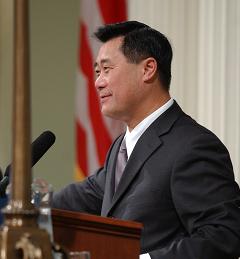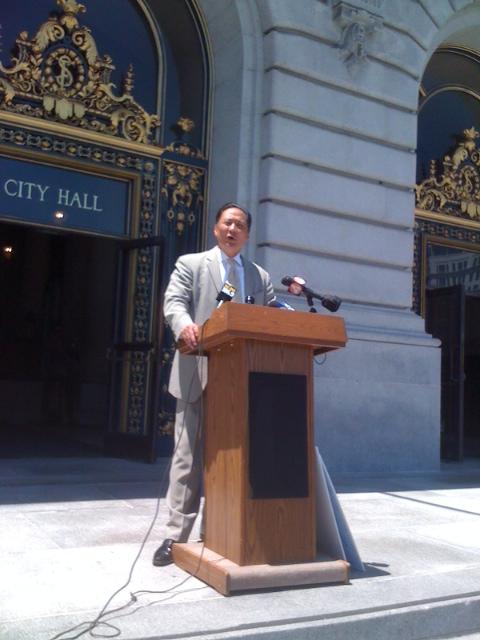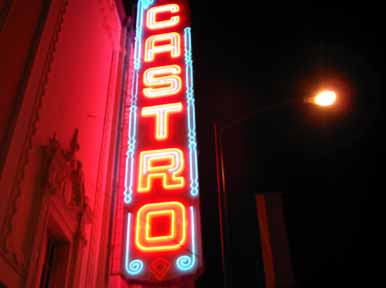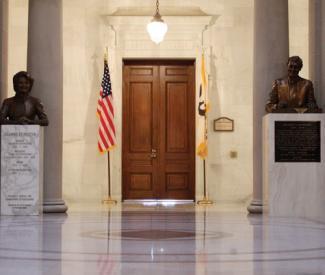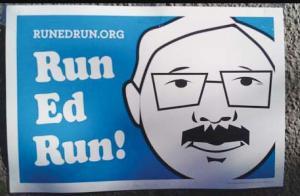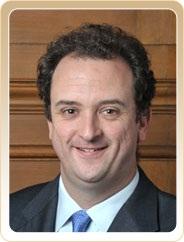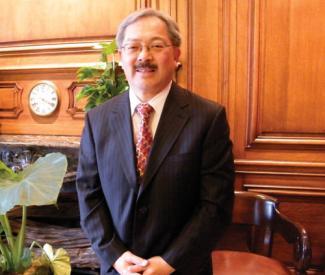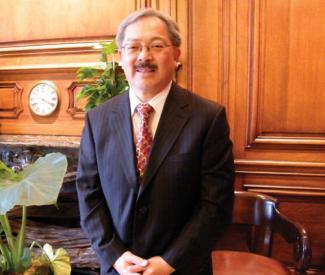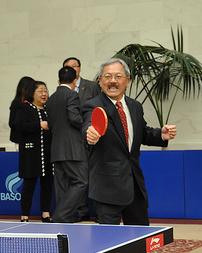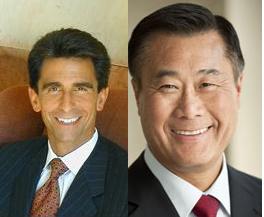Watch exclusive SFBG video of the Civic Center protest here.
The latest battle between BART and its growing group of grassroots foes played out during today’s (Mon/15) afternoon rush hour, shutting down some San Francisco stations.
What started as a fizzled anti-police brutality protest at BART’s Civic Center station has spiraled into a San Francisco moment with echoes of the Arab Spring and V For Vendetta. Following an unprecedented decision by BART officials to preemptively cut off cell phone service on August 11, in a bid to disrupt a protest that never developed, public outrage led to further protest today and a hacking attack on MyBart.org by the notorious international hacker group Anonymous over the weekend.
BART stated that it cut cell service to several of its stations during the evening commute on August 11 as a matter of public safety, fearing what officials characterized as a civil disturbance. BART did not return our call for comment, but it was apparently worried about a repeat of the July 11 protest that flooded Civic Center BART station at rush hour, preventing trains from leaving the station platform. At issue in that protest and the one that never materialized on August 11 was the fatal shooting of Charles Hill by BART police on July 3, on the Civic Center BART station train platform.
Today’s protests to disrupt rush hour BART service threatened by Anonymous materialized out of the rush hour crowd. Protestors, some in Guy Faulks masks, some with bloody shirts, spoke into cell phones repeating, “Can you hear me now? Can you hear me now?” over and over and over.
Upset by what they characterized as BART’s record of police brutality, and the recent disruption of cell phone service, they poured into the station as the platform swelled to capacity.
One protestor stood silently with a shirt that read, “Dear BART, you can’t take away our ability to call 911 while also making it a habit to shoot your riders.”
“It’s incredibly ironic to squelch free speech in San Francisco, which has long been a bastion of civil liberties,” said Rainey Reitman of the Electronic Frontier Foundation who was on hand for the protest.
Others sat on the platform floor, making messages on little red hearts decrying the shooting of Hill. A yellow handbill from #ObBART, the Anonymous name for the protest, even decried BART’s record and free speech.
Some began to block trains from exiting the platforms, promoting riot police to move in and clear people away. After a half-hour, BART Police Sgt. Coosndz ordered the protestors to clear the platform.
Protesters peaceably complied, spreading out through the Market Street corridor and causing closures at other nearby stations.
“No arrests were made on the platform and the protesters have peaceably dispersed,” Sgt. Macaulay of the BART police told the Guardian later.
BART officials said they did not shut down in-station cell service during the protest, which hardly seemed relevant as the stations were closed. On the street, amidst the stranded rush hour commuters it was difficult to tell who was protesting, with small groups of protesters gathering vocally but briefly and then melding back into the crowd.
Though inconvenient, the protest took the form of perhaps the most civil of civil disturbances the city has seen surrounding the police brutality issue – a stark contrast to some of the recent tense stand-offs between police and protesters.
One BART official struggled to keep up with a stream of people on the corner of Market and Montgomery trying to find another way home. “People have been very understanding,” he said while catching his breath for a minute.
As of press time, well beyond the normal evening commute hours, BART stations throughout the city’s downtown remained closed.
LEGAL QUESTIONS
According to the ACLU of Northern California, “BART is the first known government agency in the United States to block cell service in order to disrupt a political protest.”
As often happens in unprecedented cases, the legality of BART’s cell service disruption has been widely debated. BART asserts that it was with its rights to disrupt phone service.
“Organizers planning to disrupt BART service on August 11, 2011 stated they would use mobile devices to coordinate their disruptive activities and communicate about the location and number of BART Police. A civil disturbance during commute times at busy downtown San Francisco stations could lead to platform overcrowding and unsafe conditions,” the agency said in an official statement.
Some have said that view constitutes prior restraint, and a breach of Federal Communications Commission cell service regulations, while others have suggested that BART may have been within its rights.
“Cell phone service has not always been available in BART stations. The advent of reliable service inside of stations is relatively recent,” acknowledged Eva Galperin of the Electronic Frontier Foundation, a group that advocates for free speech in the realm of electronic communication. “But once BART made the service available, cutting it off in order to prevent the organization of a protest constitutes prior restrain on the free speech rights of every person in the station, whether they’re a protestor or a commuter.”
Michael Rifher, staff attorney ACLU of Northern California, was less sure BART’s actions crossed the line of legality. “BART contracts for phone service likely allow for this,” he said. “But from a policy point of view our government should never shut down the free flow of information. It’s dangerous to our democracy to react to protest by silencing them.”
While the legality of BART’s phone service shutdown seems unclear, the reaction of free speech advocates has not been.
Galperin characterized the action of BART officials as shameful. “BART officials are showing themselves to be of a mind with the former president of Egypt, Hosni Mubarak, who ordered the shutdown of cell phone service in Tahrir Square in response to peaceful, democratic protests earlier this year.”
Rifher echoed the same sentiments when asked about the ethics of BART’s decision. “All over the world oppressive regimes shut down basic communications to silence dissent, and we rightly condemn them. Now we are seeing similar acts here. Do we really want a system where police can call up a cell phone provider to cut service to an area over a demonstration? I think no. Demonstrations and communication are upheld by the first amendment.”
Outraged by BART’s actions, San Francisco state Senator Leland Yee called on the BART Board of Directors to take immediate action to prevent a repeat incident in the future. Yee also plans to contact the Federal Communications Commission to request an investigation on the constitutionality of the decision.
“I am shocked that BART thinks they can use authoritarian control tactics,” said Yee. “BART’s decision was not only a gross violation of free speech rights; it was irresponsible and compromised public safety.”
THE HACK
In a statement released by BART on August 14, the agency acknowledged its MyBART.org site was attacked in response to the disruption of cell service. The MyBART.org website was hacked using the logo of Anonymous and to add a link to its Twitter account. About 2,200 user identifications, emails and passwords were also stolen from the site and publicized.
“Today myBART.org account information was compromised in connection with an illegal and unauthorized intrusion into the myBART system. In response to this intrusion, we have temporarily shut down the myBART.org website, and have notified law enforcement authorities.”
The attack, claimed by Anonymous, had been threatened the day before. “The data was stored and easily obtainable via basic SQLi. Any 8-year-old with an Internet connection could have done what we did to find it. On top of that none of the info, including the passwords, was encrypted,” read a statement included with the released data.
In a separate statement Anonymous claimed the attack saying, “Anonymous will attempt to show those engaging in the censorship what it feels like to be silenced.”
WHO IS ANONYMOUS?
“We are Anonymous. We are legion. We never forgive. We never forget. Expect us.” Thus read an August 12 release by the group announcing in advance the BART.org hack, and Civic Center station protest. But who is Anonymous?
Heroes to some, loathed by others, Anonymous has caused a worldwide stir in recent years as the group has become associated internationally with championing issues involving Internet censorship.
Anonymous has become an increasing presence, some would say nuisance, in cyberspace as the group’s notoriety has rocketed after hacking attacks against major credit card companies and Paypal, in the wake of an extra judicial financial embargo of Wikileaks by major credit card companies.
In January, the federal authorities issued more than 40 search warrants and made more than 20 arrests in a nation wide sweep against Anonymous attacks on companies that illegally withheld donations to Wikileaks.
BART Police have come under increasing public scrutiny starting with the New Year’s Eve 2009 shooting of a restrained Oscar Grant. The force has been involved in three fatal shooting in the past 18 months, as many incidents as the previous 30 years of operations. The death of Charles Hill in July was the most recent of these incidents.


